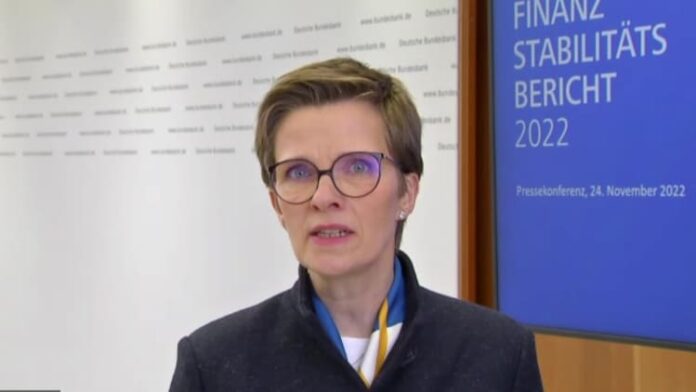Despite warnings of overvaluation, Germany’s central bank is forecasting a slowdown but no significant correction in the country’s housing market, according to a report published on Thursday.
Claudia Buch, vice president of the Bundesbank, told CNBC’s Joumanna Bercetche: “We’re seeing a slowdown in house price growth, but it’s not like the overall momentum has reversed.”
“So we still have overvaluations in the market,” she said.
The report notes the sharp rise in German house prices from 2010 to mid-2022 and says overvaluations in the market have increased, ranging from 15% to 40% in both German cities and the country as a whole in 2021.
Some analysts, including those at Deutsche Bank, are forecasting a sharp decline for the sector. Property prices are already down around 5% since March, according to Deutsche Bank, and will fall between 20% and 25% overall from peak to trough, predicts Jochen Moebert, macroeconomic analyst at Deutsche Bank.
Buch said the central bank is concerned about the extent to which overvaluation from loosening lending standards is being driven by very rapid growth in home mortgage lending.
“We’re seeing a slowdown there as well,” she said. “As such, we do not currently believe that additional action will be taken to slow the build-up of vulnerabilities in this segment of the market, but we do think we need to continue to monitor the market because we know that households are very exposed to mortgage lending, So that’s the largest component of household debt.”
The German market has a high proportion of fixed-rate mortgages, leaving households less vulnerable to rising interest rates than some other countries, she continued.
“Of course the risk isn’t going away, it’s still in the system, but that interest rate risk is largely with the financial sector, the banks that made these loans in relation to mortgages.”
The Bundesbank’s 2022 Financial Stability Report highlights other issues, including deteriorating macroeconomic conditions and slowing German economic activity, rising energy prices and falling real disposable income.
He describes the German economy at a “turning point” after course corrections on the financial markets, which led to write-downs on securities holdings. It also mentions increased requirements for collateral on the futures markets and increased risks from corporate loans.
So far there has been no fundamental reassessment of the credit risk of German banks, but the financial system is “susceptible to negative developments”.
“The message is very clear, we need a resilient financial system, we need to keep building resilience over the period ahead,” Buch told CNBC.
Additional reporting by Hannah Ward-Glenton















